Dua Lipa wants to turn this year's Glastonbury into a nightclub
- Published
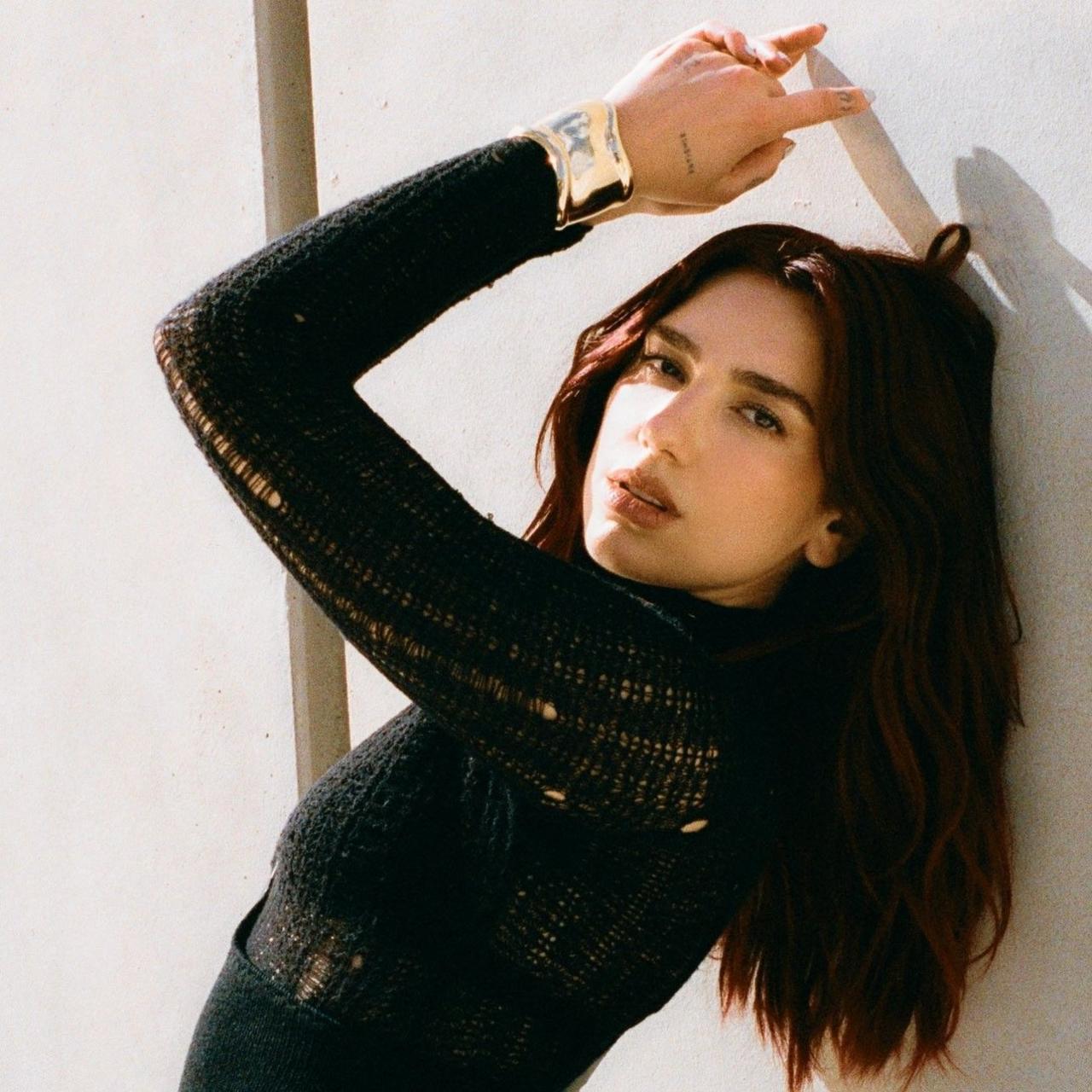
Talk about an upgrade. When Dua Lipa headlines Glastonbury this June, it will be her first appearance at Worthy Farm since playing the cramped John Peel stage in 2017.
At the time, it was the biggest crowd she'd ever played to. People spilled out of the tent into the surrounding fields.
Straight after the performance, she bounced off the stage into an interview with the BBC.
But as she sat down, she winced.
“I’ve done myself an injury," she confessed. "I mashed my tailbone.”
It was an aggravation of an old injury, caused by the whiplash intensity of her dancing.
“I was doing all sorts of crazy stuff and when I got off stage, I could barely walk,” she admitted.
Despite the pain, she was ecstatic. The gig felt like "a massive step up”.
Dua Lipa on her ambitions for Glastonbury
At that point, Dua Lipa was not yet Dua Lipa: The globe-conquering, Brit Award-winning, pandemic-soundtracking, Barbie-starring purveyor of glossy disco pop.
But one month later, she released the pastel-hued video for New Rules, external, and her career changed overnight.
A number one in the UK, and her first hit in the US, the song's message of female solidarity propelled her into main pop-girl territory, after years of hustling behind the scenes.
Red flags
The song clocked up its three-billionth play on YouTube this January – just as Dua started ramping up the campaign for her highly anticipated third album, Radical Optimism.
It’s a record that sees her navigating life after a major break-up, and establishing new New Rules to break a pattern of dating wrong ‘uns.
“Before, I would see a red flag and be like, ‘Oh, how beautiful’,” she laughs.
“It could be anything: One sly, demeaning comment that you brush off… and then you realise it's a pattern.
“I’ve learned to not kid myself.”
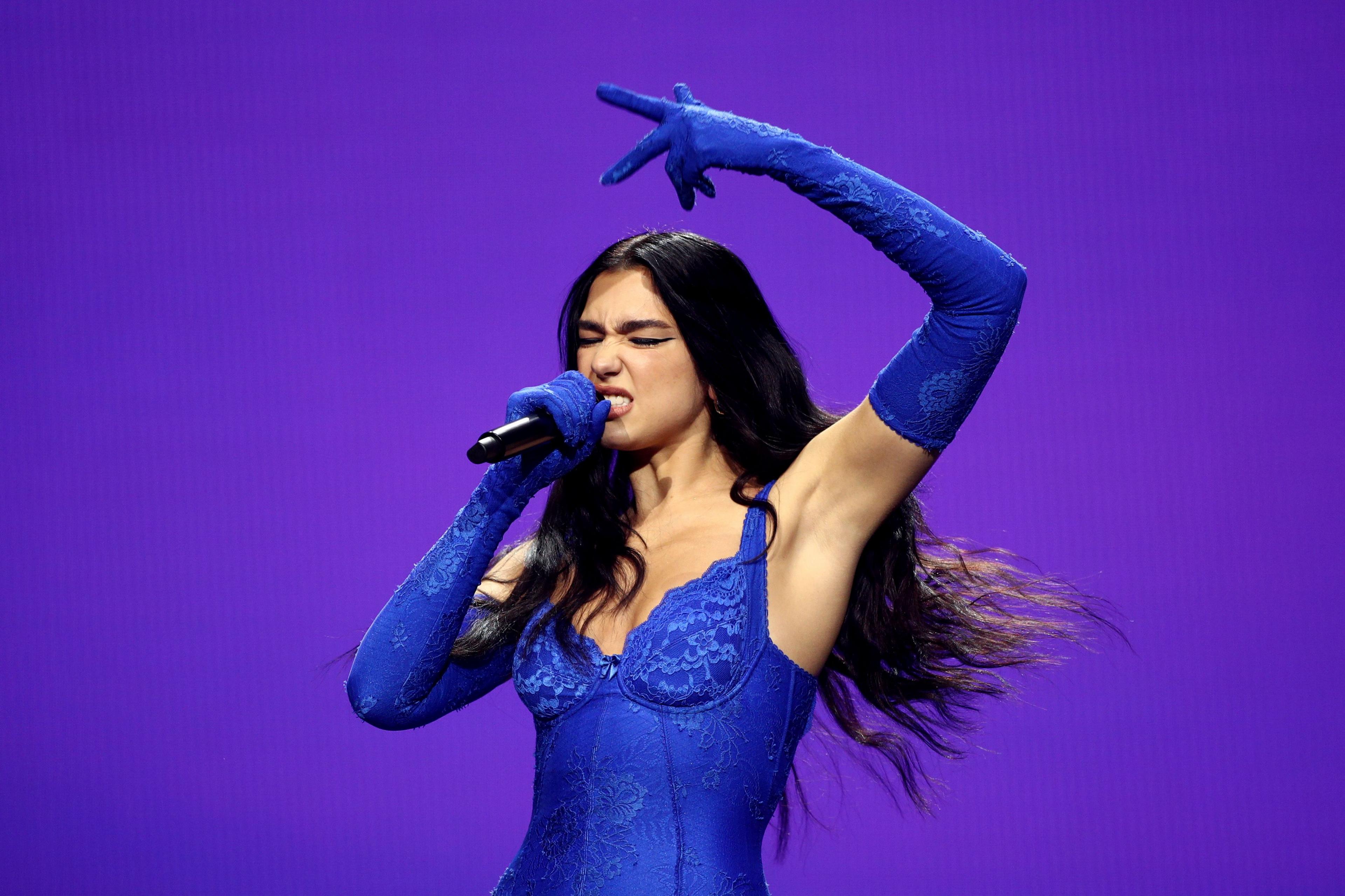
The star has sold 1.5 million copies of her first two albums, Dua Lipa and Future Nostalgia, in the UK alone
Those lessons permeate the album’s punchy, keyed-up dance anthems. On the singles Training Season and Houdini, she vets prospective partners, and shows the door to anyone who falls below her standards.
The lyrics were inspired by a string of bad dates she endured after coming out of a two-year relationship with Anwar Hadid (brother of Bella and Gigi Hadid).
But how does dating work for someone at Dua Lipa’s level of fame? Are people intimidated to ask her out?
“I don't know if people feel free to approach me,” Dua muses. “Maybe?
“Dating apps, for me, I don't think would work. They might think they’re being catfished.
“I like to go on a friend’s recommendation. It makes it easier when they're vetted."
The perfect date
When a match is made, her expectations for a first date are charmingly unstarry.
“I like a walk in the park," she says.
"You can chat and walk and get to know someone. No frills. It doesn’t have to be anything fancy.
“Having a good conversation is the best thing. That's how you see if you gel, if there's a spark.”
For now, at least, that's not a concern. Dua has been in a relationship with British actor Callum Turner since the beginning of the year.
And her personal life will have to take a back seat as she gears up for a busy summer.
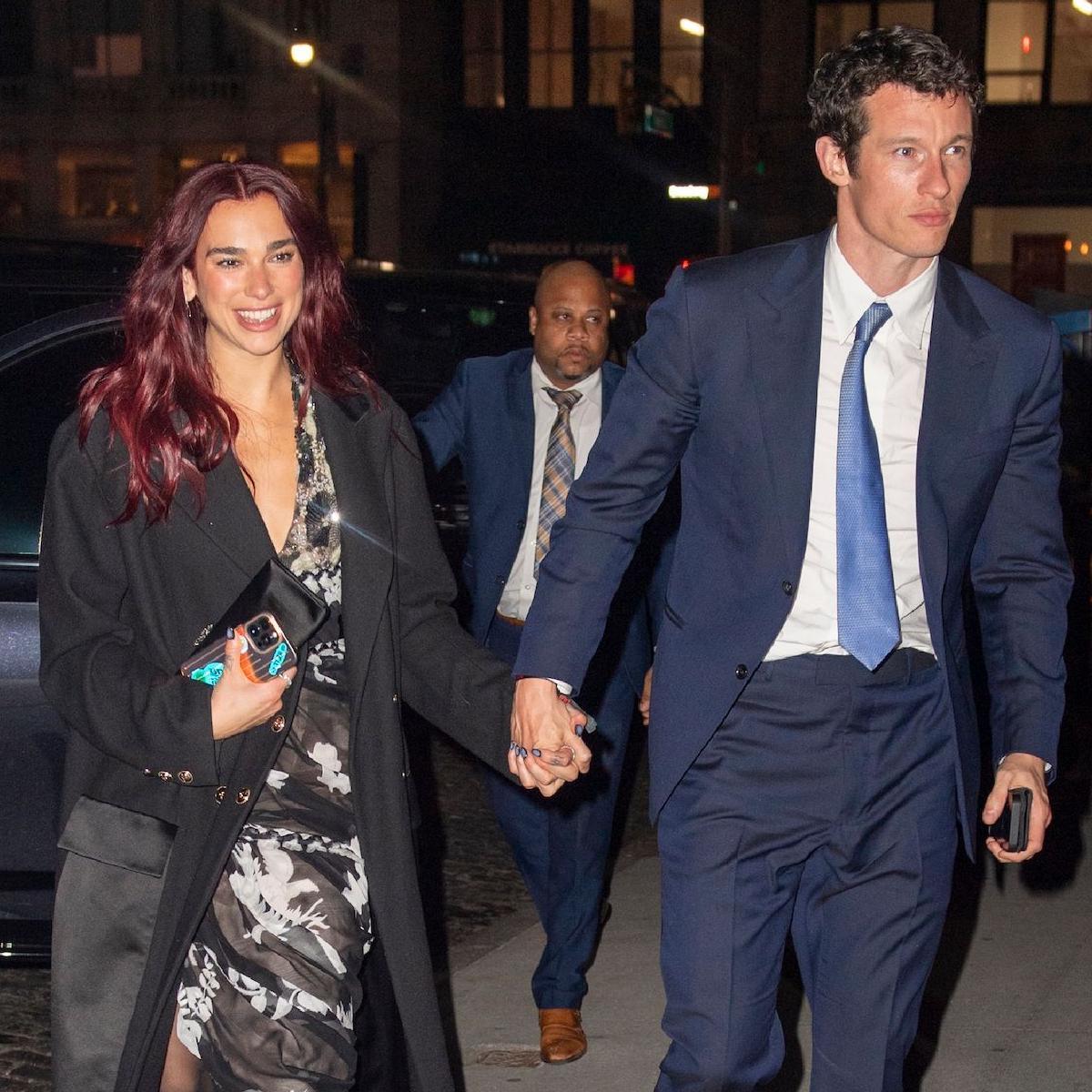
Dua Lipa pictured on a night out with British actor Callum Turner in New York
Radical Optimism is released on Friday, with Dua hosting and singing on Saturday Night Live a day later (the last British artist invited to do that was Harry Styles).
In addition, she’s got her podcast series, the weekly arts and culture newsletter Service95, and an upcoming Disney+ documentary series about Camden’s music scene, which she executive produced.
But looming over everything is Dua’s return to Glastonbury. This time on the Pyramid Stage.
“I think about it all the time,” she says.
“Fifty per cent of my thoughts go to Glastonbury, then the rest are for everyday tasks.”
Her journey to the top of the bill is a story of aspiration, setbacks and tenacity that goes right back to childhood.
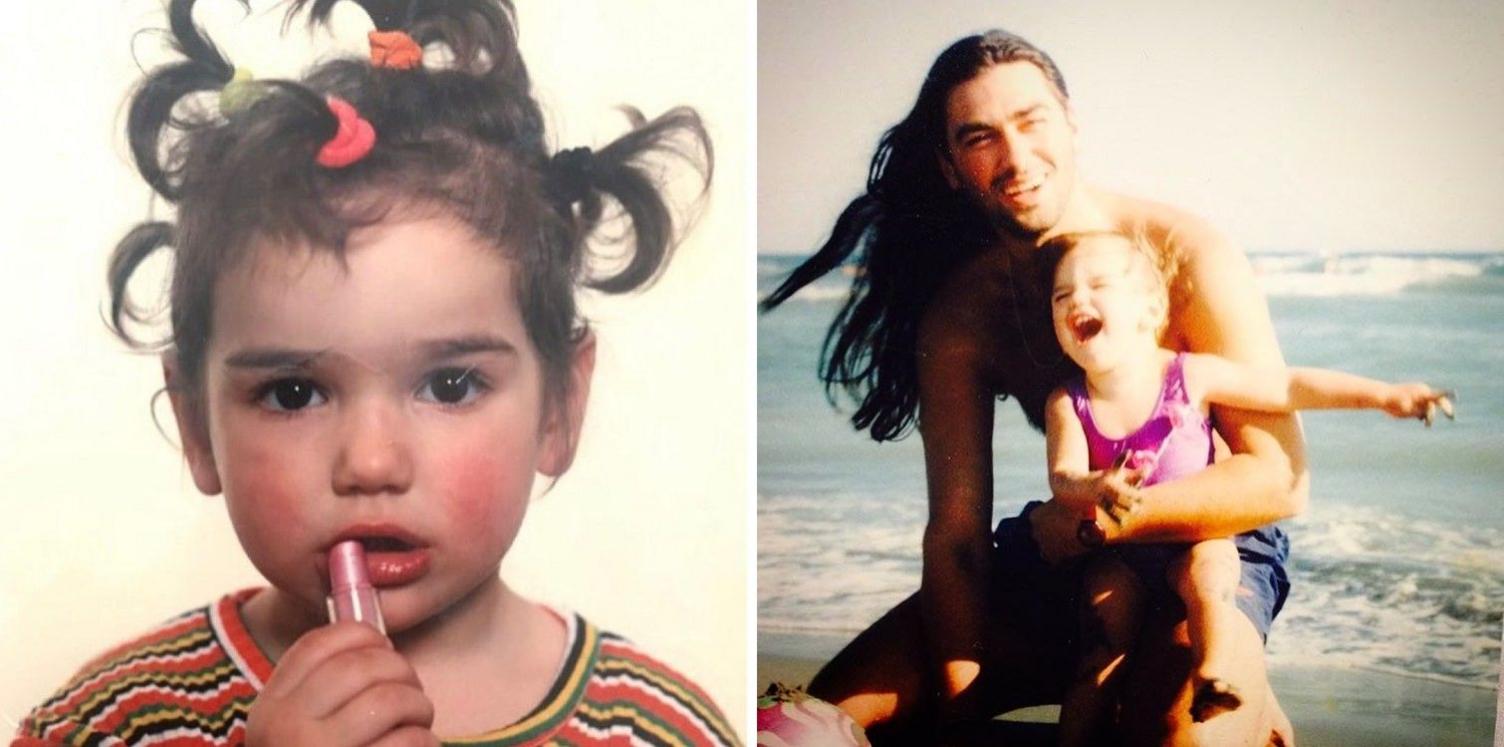
Dua Lipa was born in London and raised in the UK and Kosovo
Dua was born in London in 1995, about three years after her parents, Dukagjin and Anesa, emigrated from Kosovo, having witnessed the beginnings of what would become the Balkan wars.
A natural performer, Dua’s enthusiasm was thwarted by her primary school music teacher, who put her through a humiliating public audition in front of the whole school.
“He started playing the piano and I’m trying to hit this high note, and nothing comes out. Literally just air,” she recalls.
“Everyone in assembly laughed. I was so embarrassed. It was a big moment for me in my life.”
Glastonbury 2024: Dua Lipa, Coldplay and SZA to headline
- Published14 March 2024
"People don't want pop stars to be smart"
- Published17 January 2024
Dua Lipa is granted Albanian citizenship
- Published28 November 2022
Salvation came at the Sylvia Young Theatre School, where the young Dua Lipa enrolled as a weekend student.
There, she was taken under the wing of singing tutor Ray Lamb. Recognising that her voice skewed towards the lower end of the mezzo-soprano range, he instantly removed her from the junior choir and put her in with the teens.
She was “mortified” to be singing next to children who were twice her height, but says Ray “helped me build my confidence”.
“He was the toughest one, the scariest one, but really soft, deep down. And when he told you that you were good, you had a real sense of validation. He was the teacher that really made me feel I had something.”

Dua Lipa: Headlining Glastonbury
Watch the extended interview with Dua Lipa on BBC iPlayer (UK only).

Encouraged, she started posting cover songs to YouTube (“I thought I’d get discovered like Justin Bieber”) until, all of a sudden, her parents decided to move back to Kosovo.
Dua stuck it out for two years before persuading the family she should return to London. There, she shared a flat with a family friend, taking jobs in retail and modelling to pay her rent, while “trying to get school over with as quickly as possible”.
Her first demos were released in 2012. A year later, after appearing in an X Factor commercial, external, she signed with Lana Del Rey's manager, Ben Mawson, who sent her for two years of intensive writing sessions.
The results included early singles like Be The One and Hotter Than Hell; but it took a while for Dua to climb the rocky peaks of pop. Her debut album was delayed three times before New Rules lit a rocket underneath her career.
Suddenly, she was learning her job in the full glare of the spotlight. Some of her early TV performances lacked polish, as the singer got used to juggling live vocals with camera angles and choreography. A stilted performance at a German festival spawned the "go girl, give us nothing" meme, which still stings to this day.
"It made me feel like maybe I wasn't good enough or I didn't deserve to be there, I wasn't cut out to be a musician. " she told America’s National Public Radio in 2022, external.
These days, those early wobbles are a distant memory.
Dua opened both the 2024 Grammy and the Brit Awards, with high-concept, acrobatic dance numbers that could have been lifted straight from a movie musical.
Creating those performances counts as “some of the most rewarding work I have done with an artist in my career”, says her long-time choreographer Charm La’Donna.
“I really admire Dua's work ethic and the grit she has to keep challenging herself as a performer. We have such a good time creating together that at the end of the day, it doesn't feel like work."
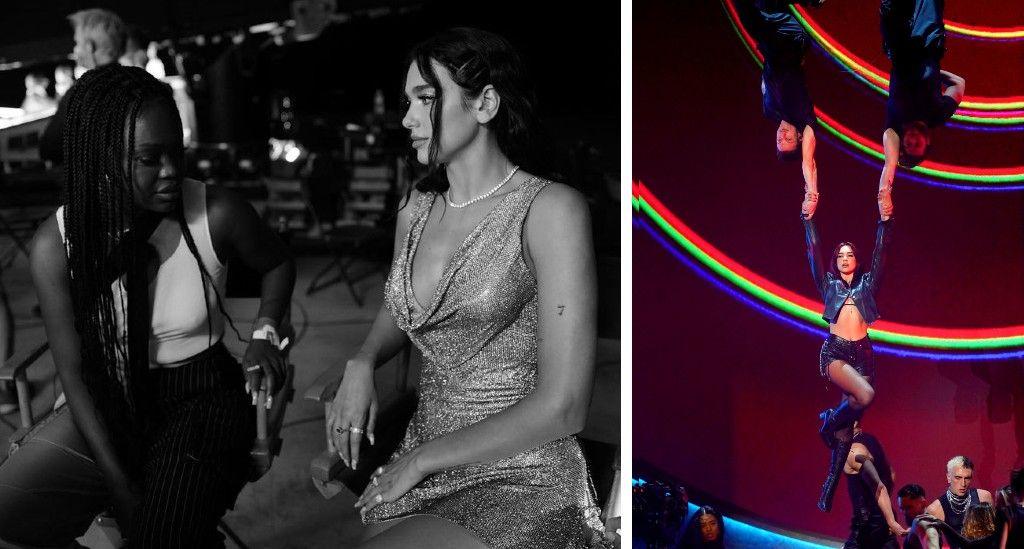
Dua in rehearsals with her choreographer Charm La'Donna (left) and performing at the 2024 Brit Awards (right)
Dua says the title of her new album, Radical Optimism, is partly a reference to the uncertainty of her early days.
“I thought it was so important, the idea of pushing through when things feel like they aren't going well. Because often, with hindsight, you can say, ‘This thing that really upset me, I can see from a different perspective now’.”
It’s a mindset she brought to the album. Writing sessions actually began in 2021, as a way of staying productive when the pandemic put her Future Nostalgia tour on hold.
“I knew the title that early,” she says. “I felt like I had to write myself into a good idea.”
However, the early sessions were fruitless. The new sound she was searching for didn’t materialise until she finally hit the road in 2022.
The thrill of playing her music with a live band inspired her to take the same approach in the studio. Programmed beats and loops were replaced by live drums, flamenco guitar and even, on a song called Maria, the sound of a Polynesian nose flute.
She calls it “alternative but pop, with a touch of psychedelia”.
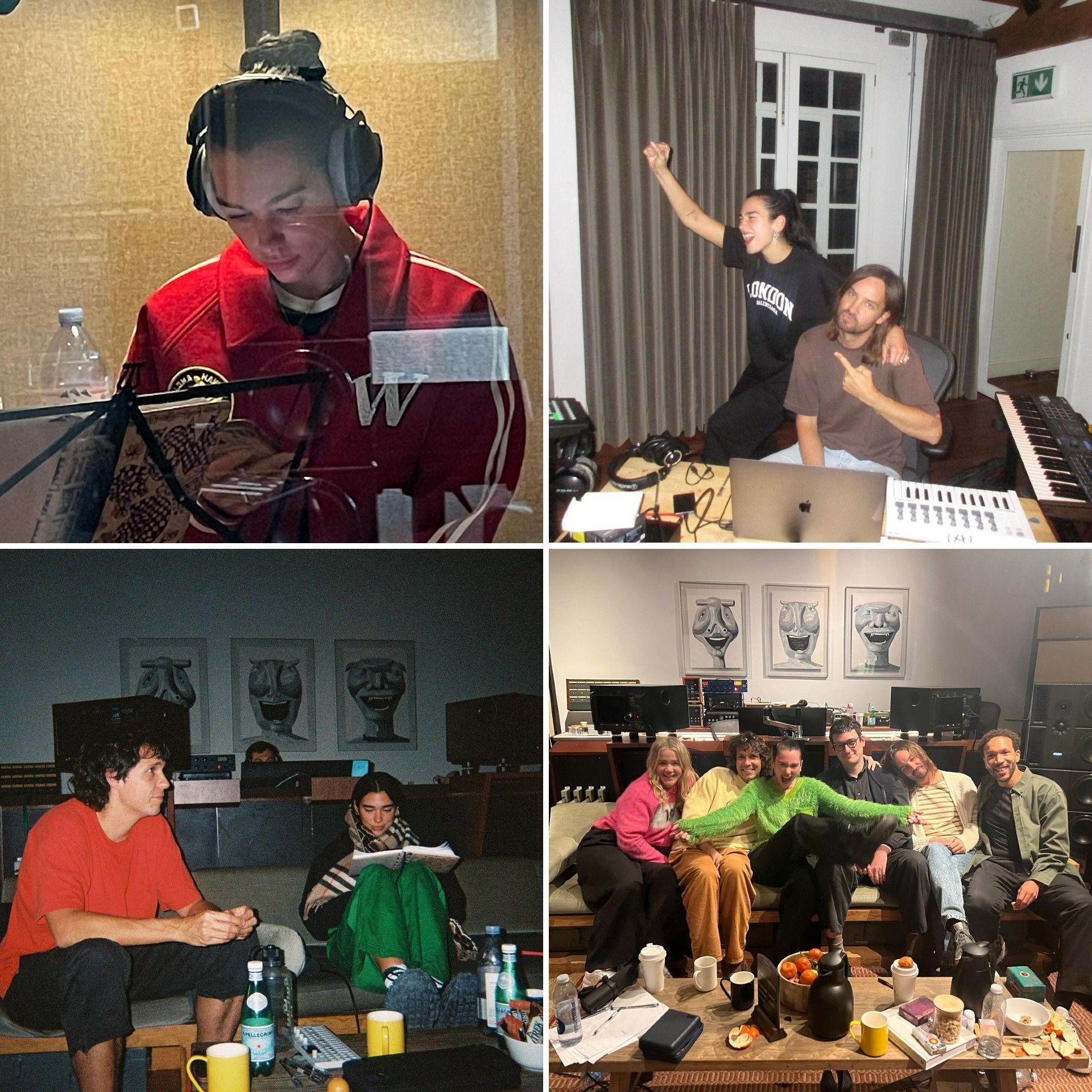
Recording sessions began in 2021. "I feel like I've grown and that emotional maturity is coming through in the songs," the star says.
Fans will hear 11 tight, summer holiday-ready pop bangers - and the ones who pay attention to the lyrics will notice a big shift in Dua’s perspective.
Her first album was full of screw-you anthems, aimed at a cheating boyfriend. But the final song on Radical Optimism, Happy For You, finds her wishing an ex good luck with his new partner.
“Even the hard parts were all for the best,” she sings over a swirling piano motif. “I must have loved you more than I ever knew."
“That’s definitely a new emotion,” says the star. “"I used to be much more impulsive and reactive [but] not every break-up has to be a bad one.”
Her writing feels more specific on this album. On Watcha Doing, Dua admits the damage her need for control causes in relationships; while These Walls is a Polaroid picture of a couple realising their time is up, that reaches Abba levels of domestic misery.
It’s a corrective to critics who’ve sometimes described Dua’s work as anonymous or faceless.
“As a pop artist, there's always the stigma of not being taken seriously,” she says. “Pop music makes you feel good, so it can't be deep, or honest, or real.
“But it's a challenge I'm willing to take on: Putting the meaning back into pop.”
'It's important to have more female headliners'
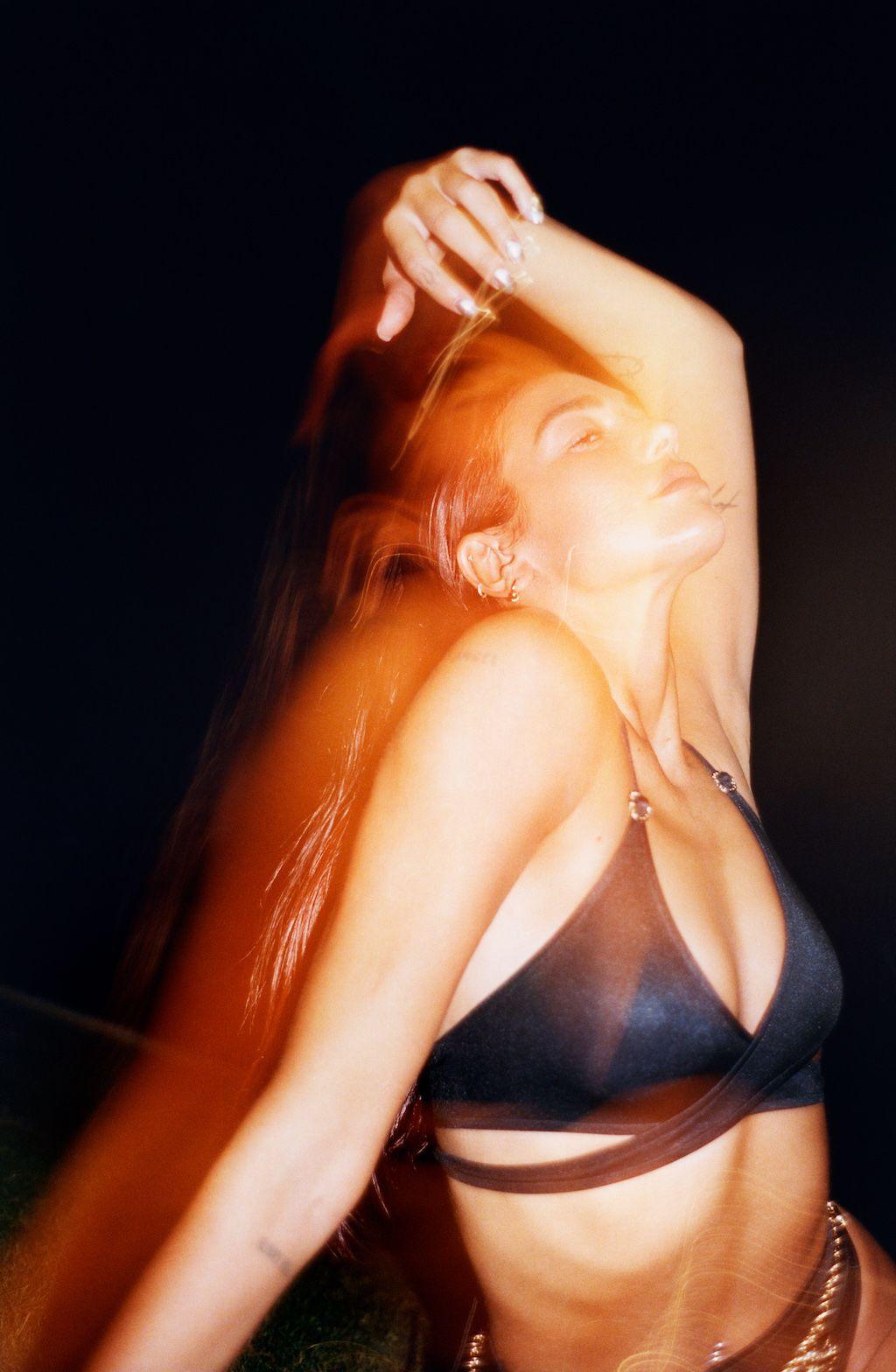
It’s notable that Dua’s album arrives within weeks of headline releases by Ariana Grande, Beyoncé and Taylor Swift, with new material from Billie Eilish due in May.
In the past, they’d have been pitted against each other by a press hungry for drama.
But not this time.
“We’re definitely growing up,” says Dua. “People are being held accountable for the way they choose to portray women.”
Setting up false rivalries “creates friction” and adds “pressure to a relationship that’s not yet fully formed”, she argues. That stifles artists’ ability to collaborate and support one another, and she’s thankful a corner has been turned.
“We’re in a moment in time where there’s so much camaraderie and I think it’s working in our favour,” she says.
“It’s amazing to see so many women putting out albums at the same time. And everyone is so different, with such different stories to tell, so why isn’t there room for everyone?”
From the archive: Dua Lipa speaks immediately after her 2017 Glastonbury set
Glastonbury proves that there is. For the first time ever, the festival will have two female headliners – with Dua joined by US R&B phenomenon SZA.
“I feel so lucky to be a part of that shift,” says Dua. “It’s important to have more female headliners. We’ve just got to keep applying the pressure and making that change happen.”
The booking is effectively a coronation for the new queen of British pop – and Dua is determined to make it count.
She casts her mind back to her first tour, when she’d invite the audience on stage for the encore of Blow Your Mind (Mwah), and wonders how that would work on the Pyramid Stage.
“It might be tight,” she laughs. “But I’ve got to figure out a way to make 150,000 people feel like they’re in a small little nightclub.
“That’s the goal, and if there’s one place to do it, it’s gotta be Glasto.”
Let’s just hope she takes care of her tailbone this time.